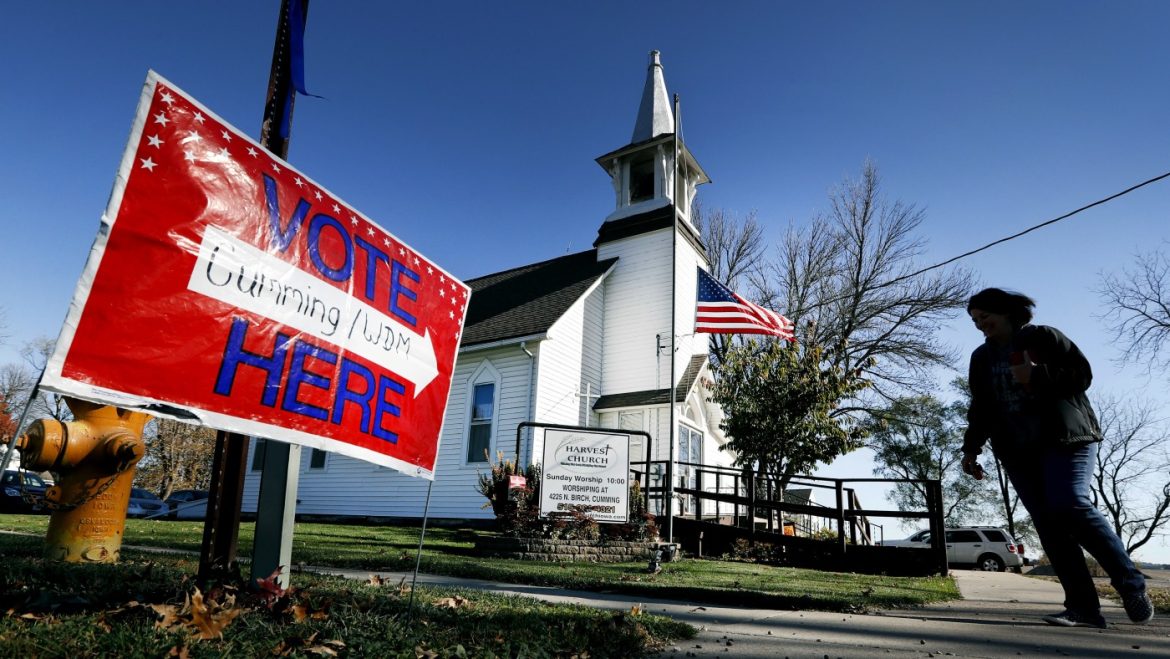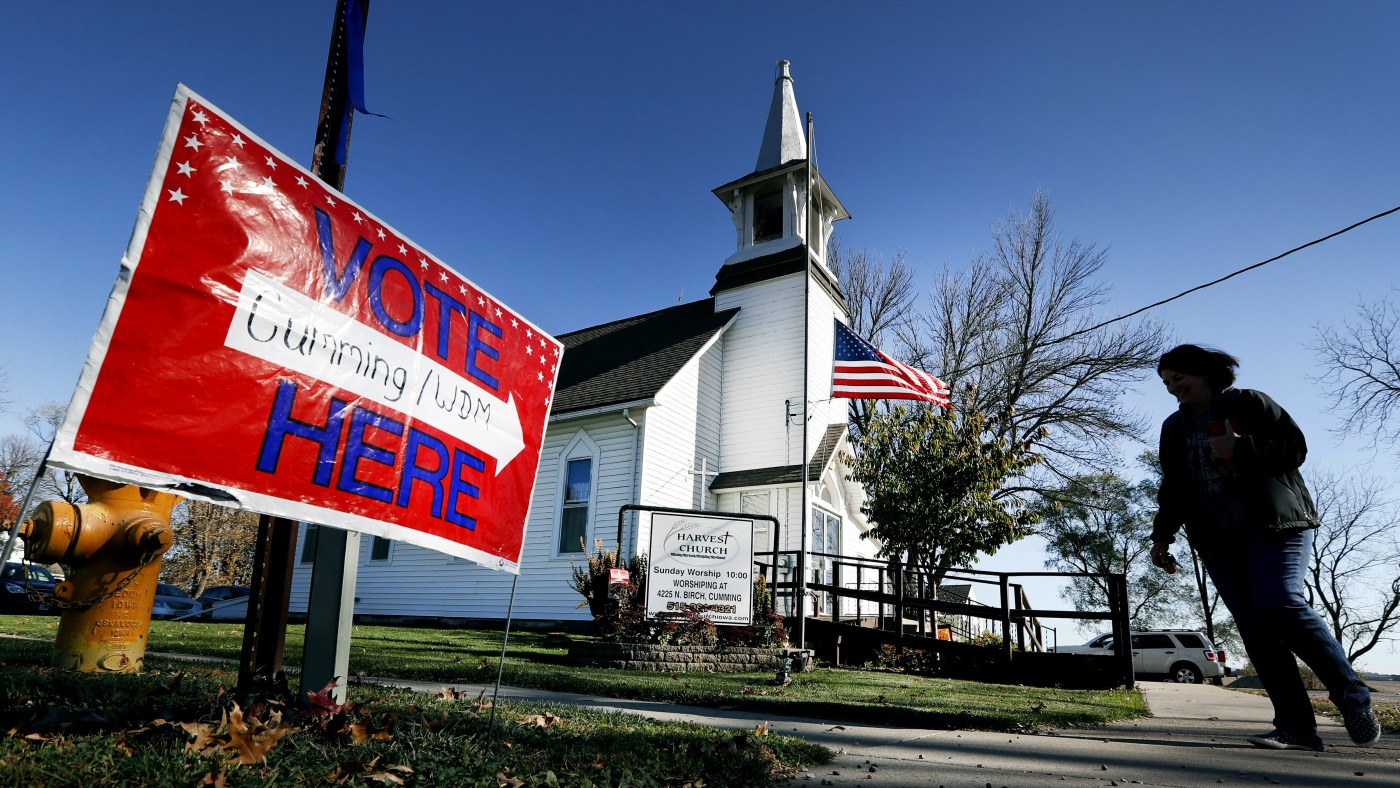The Internal Revenue Service (IRS) has recently made a seismic shift in its policy regarding the political activities of churches and other houses of worship. This decision, which allows churches to endorse political candidates without risking their tax-exempt status, marks a significant departure from the longstanding Johnson Amendment. The Johnson Amendment, enacted in 1954, has historically prohibited 501(c)(3) organizations, including churches, from directly or indirectly participating in political campaigns. This amendment was intended to maintain a clear boundary between religion and politics, ensuring that tax-exempt organizations did not use their status to influence elections.
The IRS’s decision to relax this restriction comes in the wake of a lawsuit brought by several churches and a Christian broadcasting network. These groups argued that the Johnson Amendment violated their First Amendment rights to freedom of speech and religion. The IRS appears to have adopted a more lenient interpretation of the amendment, suggesting that endorsements made during sermons or other religious services are akin to “a family discussion concerning candidates.” This interpretation implies that the agency will no longer actively enforce the ban on political endorsements by churches, effectively creating a safe harbor for religious organizations that wish to engage in partisan politics.
The potential consequences of this decision are far-reaching and complex. Proponents argue that it restores religious freedom and allows churches to exercise their right to participate fully in the political process. They believe that pastors and other religious leaders have a moral obligation to speak out on issues of public concern and that the Johnson Amendment stifled their ability to do so effectively. However, critics warn that this decision could further politicize religion, erode the separation of church and state, and create an uneven playing field in elections.
One of the primary concerns is the potential for increased polarization. The endorsement of political candidates by churches could deepen existing divisions within American society. Congregations may become increasingly aligned with specific political parties or ideologies, leading to greater social and political fragmentation. Additionally, the credibility of religious institutions could be undermined if they become too closely associated with partisan politics. People may lose faith in the impartiality of churches and view them as mere extensions of political campaigns.
Another significant concern is the financial implications of this decision. If churches are allowed to engage in political endorsements, it could be argued that they should no longer be entitled to tax-exempt status. This could have significant financial implications for religious organizations and their donors. The IRS’s decision raises questions about the fairness of the tax system and whether tax-exempt status should be contingent upon political neutrality.
There are also concerns about the potential for coercion and influence. The endorsement of political candidates by pastors could exert undue influence on congregants, particularly those who are vulnerable or less informed. This could lead to a form of religious coercion, where individuals feel pressured to vote in accordance with the preferences of their religious leaders. This raises ethical questions about the role of religious institutions in the political process and the potential for abuse of power.
Legal experts suggest that the IRS’s decision could pave the way for broader challenges to the Johnson Amendment. If churches are allowed to endorse political candidates, other tax-exempt organizations, such as charities and educational institutions, may argue that they should also be allowed to engage in political activity without risking their tax-exempt status. This could lead to a complete dismantling of the Johnson Amendment, which would fundamentally alter the landscape of campaign finance law.
Given the potential ramifications of the IRS’s decision, it is imperative that the agency provides clear guidance on the types of political activity that will be permitted and the boundaries that must not be crossed. Without such guidance, churches may be uncertain about what they can and cannot do, and the risk of abuse will increase. Furthermore, Congress should consider holding hearings to examine the implications of the IRS’s decision and determine whether legislative action is necessary to protect the integrity of the electoral process and maintain the separation of church and state. Oversight is essential to ensure that the IRS’s policy change does not lead to unintended consequences or undermine the principles of fairness and transparency in campaign finance.
The IRS’s decision regarding church endorsements arrives at a critical juncture in American history. The nation is deeply divided along political, social, and cultural lines, and the role of religion in public life has become increasingly contentious. In this polarized environment, it is essential to carefully consider the potential impact of any policy change that could further exacerbate these divisions. While proponents of the IRS’s decision argue that it promotes religious freedom, critics fear that it will further politicize religion and undermine the separation of church and state. The challenge is to find a balance between protecting religious freedom and ensuring that the electoral process remains fair, transparent, and free from undue influence.
The long-term consequences of the IRS’s decision remain to be seen. It is possible that the change will have a minimal impact on the political landscape, with only a small number of churches choosing to endorse political candidates. However, it is also possible that the decision will unleash a wave of political activity by religious organizations, transforming the role of religion in American politics. Only time will tell how this chapter unfolds. What is certain is that the IRS’s decision has opened a new chapter in the ongoing debate about the relationship between church and state, religion and politics, and the future of American democracy. The implications are far-reaching, and the nation must proceed with caution and deliberation as it navigates this uncharted territory.
Navigating this new landscape will require a delicate balance between protecting religious freedom and upholding the principles of fairness, transparency, and separation of church and state. The potential consequences are profound, and the nation must engage in a thoughtful and informed dialogue to ensure that this policy change serves the best interests of all Americans. The IRS’s decision represents a significant shift in the relationship between religion and politics in the United States, and the nation must carefully consider the implications of this change as it moves forward.


